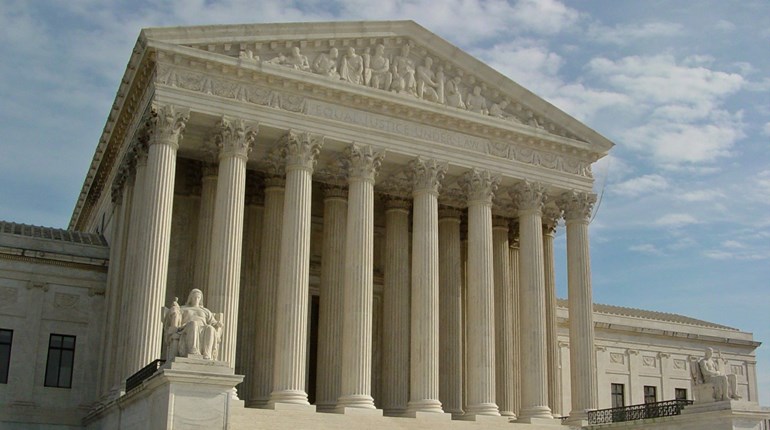
Say you are a high-ranking government official and you want someone, you know, politically eliminated—someone running for office from an opposing party, a journalist who’s getting too close to the truth, a popular radio talk show host who is the gadfly in your agenda, an incoming president-elect you detest. And let’s say your ethics are Machiavellian. You believe the ends justify the means.
You look around.
You see that the IRS was used to slow the approval of new nonprofits that were politically opposed to President Barak Obama’s re-election in 2012. You see that a secret subpoena process has been used before to obtain certain journalist’s phone records in order to get, and perhaps punish, their sources. This occurred in 2013 when the U.S. Department of Justice, under Attorney General Eric Holder, secretly subpoenaed phone records from the Associated Press (AP) and labeled Fox News reporter James Rosen a “criminal co-conspirator” under the Espionage Act of 1917 in order to gain access to his personal emails and phone records. And you see that an outgoing administration just might have purposely tried to harm an incoming administration by “unmasking” the names of American citizens caught up in surveillance of foreign officials. This classified information was then disseminated around the government, perhaps in hopes it would leak and be spun as innuendo.
Basically, you notice information is power and the government is rich with citizens’ personal information. If you’re willing to bend or break a few laws, the only thing limiting you is your imagination.
Oh, and a few laws now preventing the government from maintaining certain records—like the guns U.S. citizens buy.These are just a few reasons why your NRA has long fought to keep the government out of the firearms owner database business.
So just imagine for a moment if the U.S. government had some type of searchable gun owner database of American citizens. It doesn’t take much of an imagination to foresee how an anti-gun-freedom politician or political appointees might use that information.
Never mind that such a database isn’t feasible, that it wouldn’t, by definition, include illegally owned guns or that such databases have failed where they’ve been tried, such as in Maryland and Canada. The information, however inaccurate it might be, could be used to “out” concealed-carry permit owners (which has happened), to punish those who receive government benefits (which has been tried) or to confiscate legal arms (which has happened in other countries).
These are just a few reasons why your NRA has long fought to keep the government out of the firearms owner database business. But make no mistake, this is something a few in the government want.
On a visit to the Bureau of Alcohol, Tobacco, Firearms and Explosives’ (ATF) National Tracing Center in Martinsburg, W.V., last year, an ATF spokesperson vociferously complained to me that they don’t have a searchable database of the guns Americans own.
Neil Troppman, a program manager with the ATF, led me around the National Tracing Center. I saw ATF employees busy digitizing millions of documents from dead gun stores. Gun stores are required by federal law to keep these records. If a gun store goes out of business or simply decides to stop selling guns it must send its records of gun sales to the ATF.
These records are used in criminal investigations. When a police officer confiscates a gun, because he or she found it at a crime scene or for any other reason, he might contact the ATF. The ATF calls the company that made the gun. The gun manufacturer looks through its records to see what gun store or wholesaler the gun was sold and shipped to. The ATF then follows this chain to the federal firearms licensed dealer (FFL) that originally sold the gun. The FFL searches its records and gives the name and contact information of the purchaser. The ATF then gives this information to the investigating officer.
Troppman made it very clear he was unhappy with what it takes the ATF to run down who originally purchased a particular gun. Troppman even said, “I was watching one of those crime dramas recently—NCIS or something—when it showed a cop using his smartphone to look up the history of a criminal’s gun. Then all this data appeared on his phone. When it was sold, who bought it … everything. People think we can do that now, but we can’t.”
Troppman paused. He seemed to expect me, and a reporter from Mother Jones with me on the tour, to be mystified with the daunting amount of records they have to deal with. I was, but I also kept thinking that if the ATF is having trouble dealing with the records from gun stores that go out of business, then how could they possibly deal with the records from all gun stores? And even if they were given all the resources to somehow do that, this still wouldn’t include criminals’ guns. Then we have the worries about how this information on American citizens who decide to simply utilize a constitutionally protected right might be used by the ATF or another government agency. We’d also have to worry how a political appointee might try to use the information.
Now, as misuses of government data keep making headlines, be thankful the government isn’t allowed to keep a searchable database of those who take freedom in their own hands.
Frank Miniter is the author of The New York Times bestseller The Ultimate Man’s Survival Guide—Recovering the Lost Art of Manhood. He is also the author of This Will Make a Man of You and The Future of the Gun. He is a contributor to Forbes and writes for many publications. His website is FrankMiniter.com.

































